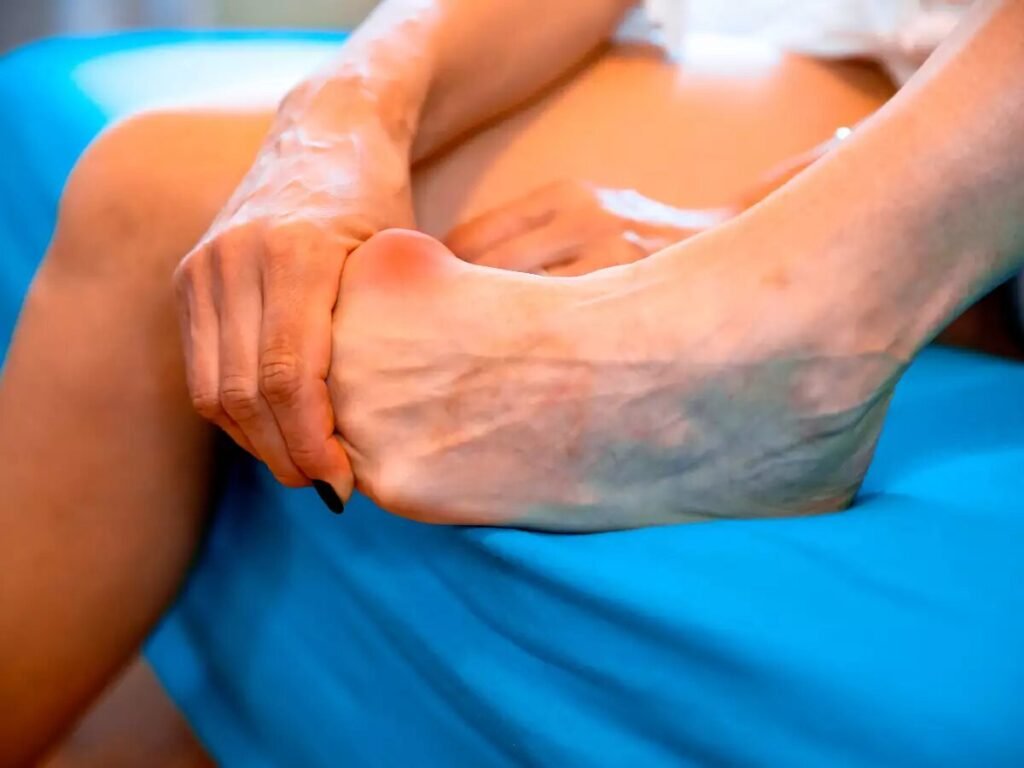Bone Cancer
Overview: Bone cancer is a malignant tumor that arises from the cells that make up the bones. It can start in any bone in the body but most commonly affects the long bones of the arms and legs. Bone cancer is relatively rare compared to other types of cancer.
Types of Bone Cancer:
Primary Bone Cancer:
- Osteosarcoma: The most common type, typically affecting children and young adults. It usually develops in the long bones around the knee and upper arm.
- Ewing Sarcoma: Often occurs in children and adolescents, primarily in the pelvis, thigh, and trunk.
- Chondrosarcoma: More common in adults, starting in the cartilage cells and typically affecting the pelvis, thigh, and shoulder.
- Chordoma: A rare type that usually occurs in the spine and base of the skull.
Secondary Bone Cancer:
- Also known as metastatic bone cancer, it originates in other parts of the body (such as the breast, prostate, or lung) and spreads to the bones.
Risk Factors:
- Genetic Disorders: Conditions like Li-Fraumeni syndrome, hereditary retinoblastoma, and multiple exostoses syndrome.
- Radiation Therapy: Previous exposure to high doses of radiation, especially during childhood.
- Paget’s Disease of Bone: A chronic disorder that can lead to bone cancer in a small percentage of cases.
- Family History: Genetic predisposition to certain types of bone cancer.
Symptoms:
- Bone Pain: Persistent or intermittent pain in the affected area, often worsening at night or with activity.
- Swelling: Noticeable swelling or a lump over a bone.
- Fractures: Bones weakened by cancer may break more easily.
- Reduced Mobility: Difficulty moving the affected limb or joint.
- Fatigue: General feeling of tiredness and weakness.
- Unintended Weight Loss: Losing weight without trying.
Diagnosis:
Imaging Tests:
- X-rays: To detect bone abnormalities.
- CT Scan or MRI: To get detailed images of the bone and surrounding tissues.
- Bone Scan: To identify areas of high bone activity, indicating potential cancer.
- PET Scan: To detect cancerous cells throughout the body.
Biopsy:
- Needle Biopsy: A needle is used to extract a small sample of tissue from the tumor.
- Surgical Biopsy: A small incision is made to remove a tissue sample for examination.
Blood Tests:
- To check for elevated levels of certain enzymes and proteins that might indicate bone cancer.
Treatment Options:
Surgery:
- Limb-Sparing Surgery: Removal of the tumor without amputating the limb.
- Amputation: Removal of part or all of the limb if the tumor is extensive.
- Reconstructive Surgery: Using bone grafts or metal implants to restore limb function after tumor removal.
Radiation Therapy:
- High-energy beams are used to kill cancer cells and shrink tumors.
Chemotherapy:
- Drugs are used to kill cancer cells, often before surgery to shrink the tumor or after surgery to kill remaining cells.
Targeted Therapy:
- Drugs or other substances that specifically attack cancer cells with minimal damage to normal cells.
Immunotherapy:
- Stimulating the body’s immune system to attack cancer cells.
Preventive Measures:
Since the exact cause of bone cancer is not well understood, specific preventive measures are limited. However:
- Genetic Counseling: For individuals with a family history of bone cancer or genetic predispositions.
- Avoiding Radiation Exposure: Limiting unnecessary exposure to high doses of radiation.
Ayurvedic Perspective:
Diet and Nutrition:
- Anti-inflammatory Foods: Include turmeric, ginger, garlic, green leafy vegetables, and whole grains.
- Calcium and Vitamin D: Ensure adequate intake to support bone health.
- Balanced Diet: Emphasize a diet rich in fruits, vegetables, and healthy fats.
Herbal Remedies:
- Ashwagandha (Withania somnifera): Supports overall vitality and stress management.
- Turmeric (Curcuma longa): Contains curcumin, which has anti-inflammatory and antioxidant properties.
- Guggul (Commiphora mukul): Known for its anti-inflammatory and immune-boosting properties.
Lifestyle Modifications:
- Yoga and Meditation: Practice yoga and meditation to reduce stress and improve overall well-being.
- Pranayama (Breathing Exercises): Engage in breathing exercises to enhance lung capacity and reduce stress.
Rasayana Therapy:
- Rejuvenation Therapies: Undergo Rasayana (rejuvenation) therapies to strengthen the body’s resilience and improve overall health.
Important Note:
While Ayurvedic treatments can offer supportive care and improve quality of life, they should complement conventional medical treatments for bone cancer, not replace them. Always consult with healthcare professionals and qualified Ayurvedic practitioners before starting any new treatment regimen.

